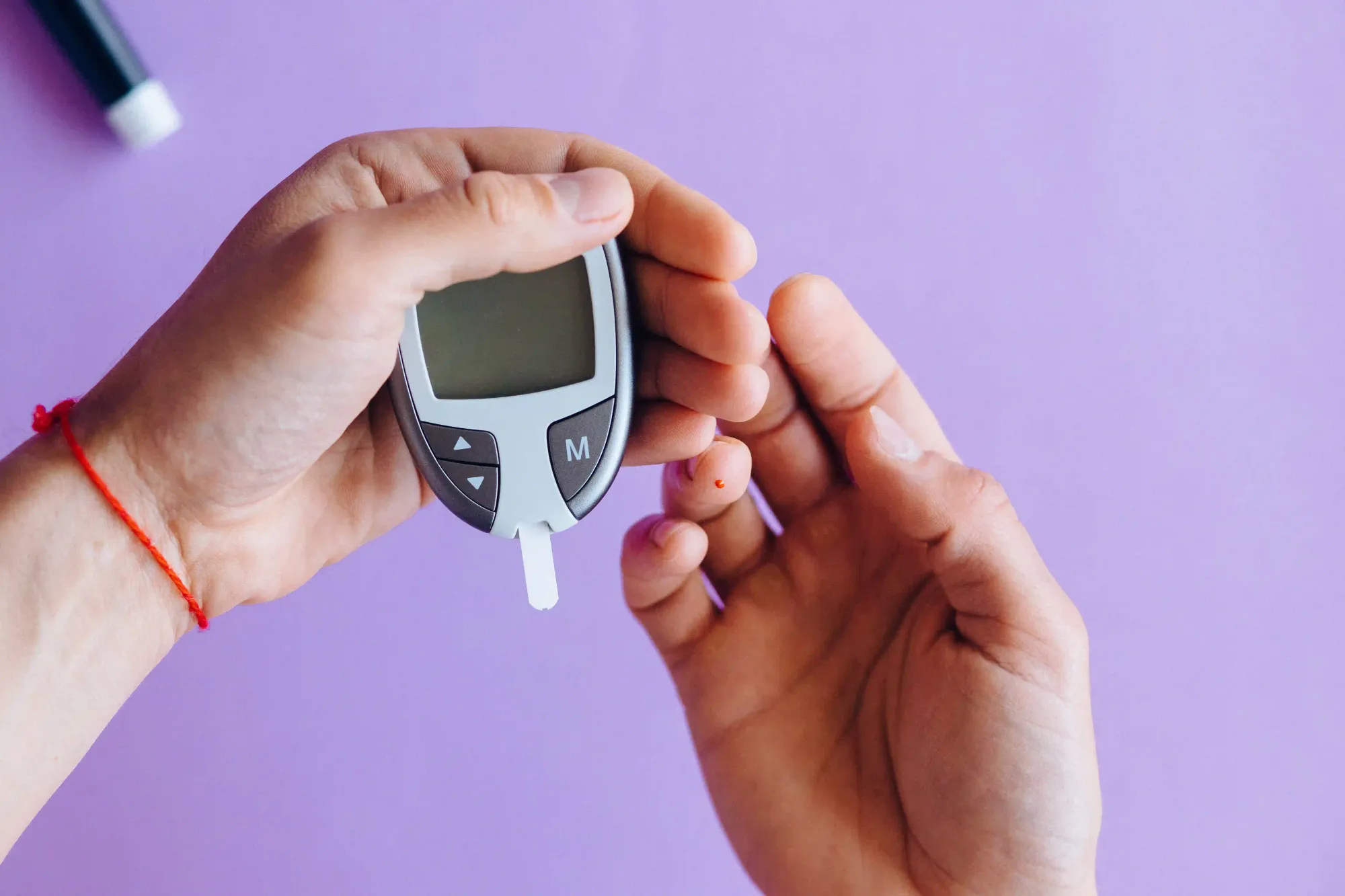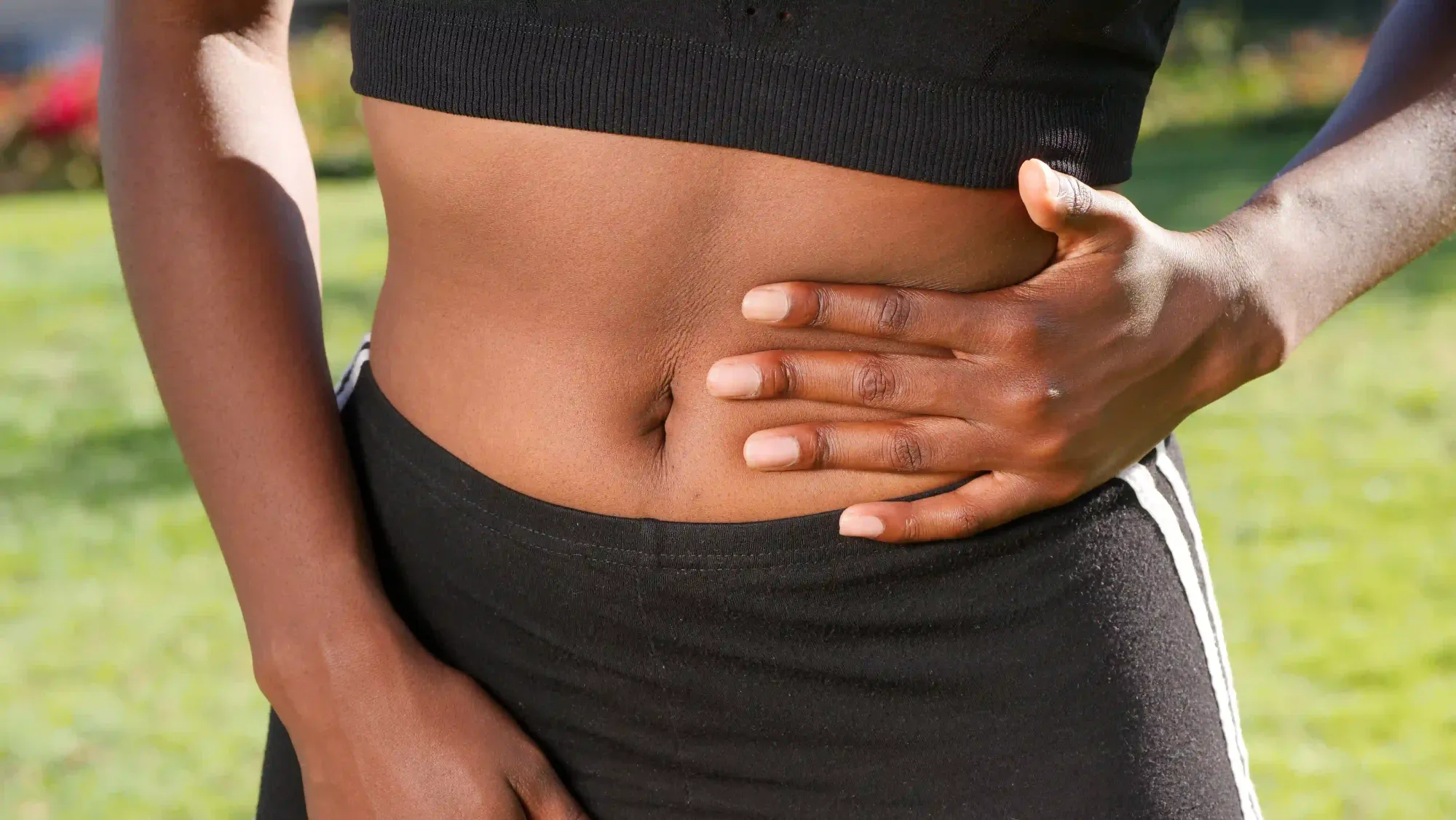Hey there, it's Yannick. Today, I want to talk to you about something that has been on my mind lately: berberine. This natural compound has been gaining popularity in the health and wellness world, and for good reason. But is it really as amazing as some people claim? Let's dive in and find out.
Mechanisms that allow berberine to help with glucose levels:
- Improves insulin sensitivity and reduces insulin resistance.
- Activates AMP-activated protein kinase (AMPK), a key enzyme in cellular energy homeostasis that is activated during fasting, resulting in improved glucose uptake and insulin sensitivity.
- Inhibits hepatic gluconeogenesis, the production of glucose in the liver.
Other benefits of berberine:
- May help regulate blood pressure and lipid metabolism.
- May improve lipid profiles and decrease bad cholesterol.
- May have anti-inflammatory and gut microbiota-modulating effects.
- May promote fat loss and weight loss.
- May have beneficial effects on cardiovascular disease.
What is Dry Fasting and How Can it Benefit Your Health?
First, let's talk about dry fasting. Dry fasting is an extreme form of fasting that involves abstaining from both food and water for a certain period of time.
It can have powerful benefits for the body, including improved metabolic health, increased autophagy, and reduced inflammation. However, it's not for everyone, and it can be challenging to transition from water fasting to dry fasting, but once you’ve done it, most people never go back.
The Challenges of Transitioning to a Low Glucose Fasting State
As someone who has been practicing intermittent fasting and water fasting for over 10 years, I know firsthand how difficult it can be to make the transition to a low-glucose fasting state. In fact, the first time I tried a week-long dry fast, I was completely unprepared for the keto flu that hit me like a ton of bricks.

The keto flu is a common side effect of transitioning to a low-glucose fasting state. It can cause symptoms such as headaches, dizziness, nausea, and fatigue.
It's caused by a shift in the body's metabolism from using glucose for energy to using ketones. It’s also caused by a sudden drop in electrolytes, as our body's electrolyte levels are directly correlated with glucose levels. This shift can take time and can be challenging for the body to adapt to.
Berberine: A Natural Supplement for Dry Fasting Preparation
This is where Berberine comes in. Berberine is a natural compound found in various plants, including goldenseal, Oregon grape, and Chinese goldthread. It has been used for centuries in traditional Chinese medicine to treat a wide variety of ailments, including diabetes.

Recent research has also shown that berberine can help improve insulin sensitivity, reduce insulin resistance, and regulate blood glucose levels. This makes it an ideal supplement to take before a dry fast, as it can help ease the transition from a high glucose-fed state to a low glucose fasting state and prevent the "keto flu." If this is true, it may just be one of the magical pills that will make fasting 100x easier for most people. Keep in mind that this keto flu transition is what stops most people from ever attempting longer fasts.
But is berberine really the miracle supplement that some people claim it to be? Like with any supplement, it's important to do your own research and consult with a healthcare professional before incorporating berberine into your regimen.
Think of berberine as a tool in your toolbox for dry fasting preparation. It can help regulate blood glucose levels and ease the transition to a low-glucose fasting state, but it's not a magic bullet. It's important to have a well-rounded approach to dry fasting, which includes proper nutrition, hydration, and mindset.
When I started incorporating more whole foods and healthy fats into my diet, I found that the transition to a low-carb diet became much easier. This time, I started incorporating berberine into my dry fasting preparation protocol, and I noticed a significant improvement in my energy levels and overall well-being during the first 48 hours of my fast - the ‘bad’ days.
In fact, the last time I attempted a 72 dry fast, I experienced none of the "keto flu" symptoms that I had experienced in the past. I was able to transition seamlessly to a low glucose fasting state, and I felt amazing throughout the entire fast.
What’s Metformin?
For someone new to the world of blood glucose management, it can be overwhelming to navigate the various options out there. But Metformin is a name a lot of people have heard. It’s kind of like the diabetic's main go-to.
Metformin is a common drug used to manage diabetes, but it can come with side effects like gastrointestinal issues and lactic acidosis. Berberine is a lesser-known supplement that has been shown to have similar effects on regulating blood glucose levels and improving insulin sensitivity, but with fewer side effects. Very cool.
How Berberine Can Help Regulate Blood Glucose Levels and Ease the Transition to Dry Fasting
Check out some of this research on Berberine and fasting:
"Berberine, a natural plant product, activates AMP-activated protein kinase with beneficial metabolic effects in diabetic and insulin-resistant states" by Yan et al. (2008)
This study examined the effects of berberine on the activation of AMP-activated protein kinase (AMPK) in diabetic and insulin-resistant states. AMPK is an enzyme that plays a key role in cellular energy homeostasis and is activated during fasting and exercise.
The study found that berberine significantly increased AMPK activation, resulting in improved glucose uptake and insulin sensitivity. These findings suggest that berberine may be a useful tool in improving metabolic health, particularly in those with diabetes and insulin resistance.
This study is particularly relevant to fasting because of its effects on AMPK activation. As I mentioned earlier, AMPK is a key enzyme that plays a role in cellular energy homeostasis and is activated during fasting.
By increasing AMPK activation, berberine may be able to help ease the transition from a high glucose fed state to a low glucose fasting state. This could make the fasting process more tolerable and may help prevent the "keto flu" symptoms that some people experience during the transition.
"Berberine ameliorates insulin resistance in rats by increasing PPARγ, adiponectin and insulin receptor expression" by Li et al. (2010)
This study investigated the effects of berberine on insulin resistance in rats. The study found that berberine significantly improved insulin resistance, and this effect was associated with increased expression of peroxisome proliferator-activated receptor gamma (PPARγ), adiponectin, and insulin receptors. These findings suggest that berberine may be a useful tool in improving insulin sensitivity and reducing insulin resistance.
This study is relevant to fasting because it highlights the potential of berberine to improve insulin sensitivity. Improved insulin sensitivity can help the body more effectively utilize glucose for energy and can make the transition to a low-glucose fasting state easier. By improving insulin sensitivity, berberine may be able to help prevent the "keto flu" symptoms that some people experience during the transition to fasting.
"Berberine improves glucose metabolism in diabetic rats by inhibition of hepatic gluconeogenesis" by Zhang et al. (2011)
This study examined the effects of berberine on glucose metabolism in diabetic rats. The study found that berberine significantly improved glucose metabolism and reduced hepatic gluconeogenesis (the production of glucose in the liver). These findings suggest that berberine may be a useful tool in improving metabolic health in those with diabetes.
Usually improved glucose metabolism means more insulin and lower blood glucose levels. This is great because this is exactly the scenario we want as we prepare to embark on a dry fast.
Side effects of Berberine to watch out for
When it comes to any supplement or drug, it's always important to weigh the potential benefits against the potential side effects. Berberine is no exception. While it has been shown to have some impressive effects on improving metabolic health and regulating blood glucose levels, it's important to be aware of its potential side effects.
As someone who has experimented with various supplements and fasting regimens over the years, I know firsthand the importance of doing your research and being aware of potential risks.
When I first heard about berberine and its potential effects on improving insulin sensitivity and easing the transition to a low-glucose fasting state, I was excited to give it a try. But I also wanted to be cautious and do my due diligence to make sure I was aware of any potential side effects.

One of the most common side effects of berberine is gastrointestinal discomfort. This can include symptoms like diarrhea, constipation, and nausea. Headaches included, but I believe this has more to do with the blood glucose lowering, which is a common symptom of all diabetics. While these side effects are generally mild and temporary, they can be unpleasant for some people. I personally experienced some mild nausea when I first started taking berberine, but it subsided after a few days.
Another potential side effect of berberine is liver toxicity. While this is a rare side effect, it's still important to be aware of the potential risk. Overall, while the potential side effects of berberine may seem concerning, it's important to remember that they are generally mild and temporary. By starting with a low dose and gradually increasing it over time, you can help minimize the risk of side effects.
Is Berberine the Missing Piece of the Puzzle for a Successful Dry Fast?
So it looks like berberine can be a valuable tool in preparing for a successful dry fast. However, it's important to approach it as a supplement, rather than a cure-all. In fact, a member of the Dry Fasting Club discord group mentioned that her sugar levels skyrocket after taking Berberine.
This would mean that some metabolic diseases caused by long covid or vaccine covid may make it impossible to take this supplement. So it may not be for everyone, but overall, incorporating berberine into your dry fasting preparation protocol can help regulate blood glucose levels and ease the transition to a low glucose fasting state, but it's just one piece of the puzzle.
In the end, dry fasting can be an incredibly powerful tool for improving metabolic health and promoting longevity. With the right preparation and mindset, anyone can experience the benefits of this ancient practice. And with the help of supplements like berberine, the transition to a low-glucose fasting state can be a little bit easier.
So go ahead, and give dry fasting a try. Who knows, it might just change your life. And if you're struggling with the transition to a low glucose fasting state, consider incorporating berberine into your regimen. It might just be the missing piece of the puzzle that you've been looking for.
Do you have any experience with Berberine? Have you noticed any improvements in your fasting health? Let us know in the comments below!
Sources
- Yin, J., Xing, H., Ye, J. (2008). Efficacy of berberine in patients with type 2 diabetes mellitus. Metabolism Clinical and Experimental, 57(5), 712–717.
- Dong, H., Wang, N., Zhao, L., Lu, F. (2012). Berberine in the treatment of type 2 diabetes mellitus: a systemic review and meta-analysis. Evidence-Based Complementary and Alternative Medicine, 2012, 1-12.
- Lan, J., Zhao, Y., Dong, F., Yan, Z., Zheng, W., Fan, J., Sun, G. (2015). Meta-analysis of the effect and safety of berberine in the treatment of type 2 diabetes mellitus, hyperlipemia and hypertension. Journal of Ethnopharmacology, 161, 69–81.
- Zhang, H., Wei, J., Xue, R., Wu, J., Zhao, W., Wang, Z., Wang, X. (2010). Berberine lowers blood glucose in type 2 diabetes mellitus patients through increasing insulin receptor expression. Metabolism Clinical and Experimental, 59(2), 285–292.
- Pérez-Rubio, K. G., González-Ortiz, M., Martínez-Abundis, E., Robles-Cervantes, J. A., Espinel-Bermúdez, C., Effect of berberine administration on metabolic syndrome, insulin sensitivity, and insulin secretion. Metabolic Syndrome and Related Disorders, 9(5), 379-385.
- Zhang, Y., Li, X., Zou, D., Liu, W., Yang, J., Zhu, N., Li, B., Luo, C., Zhang, J., Chen, M., Wang, Z., Peng, X. (2008). Treatment of type 2 diabetes and dyslipidemia with the natural plant alkaloid berberine. Journal of Clinical Endocrinology and Metabolism, 93(7), 2559–2565.
- Wang, Y., Huang, Y., Lam, K. S., Li, Y., Wong, W. T., Ye, H., Wu, D., Cheng, K. K., & Xu, A. (2010). Berberine prevents hyperglycemia-induced endothelial injury and enhances vasodilatation via adenosine monophosphate-activated protein kinase and endothelial nitric oxide synthase. Cardiovascular research, 87(3), 561–569.
- Turner, N., Li, J. Y., Gosby, A., To, S. W. C., Cheng, Z., Miyoshi, H., Taketo, M. M., Cooney, G. J., Kraegen, E. W., James, D. E., Hu, L. H., & Li, J. (2008). Berberine and its more biologically available derivative, dihydroberberine, inhibit mitochondrial respiratory complex I: A mechanism for the action of berberine to activate AMP-activated protein kinase and improve insulin action. Diabetes, 57(5), 1414–1418.



